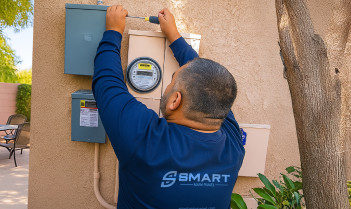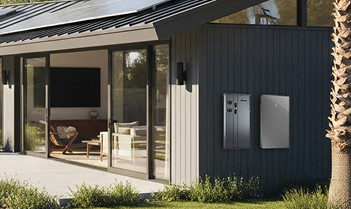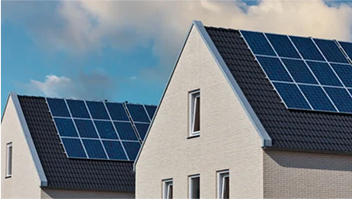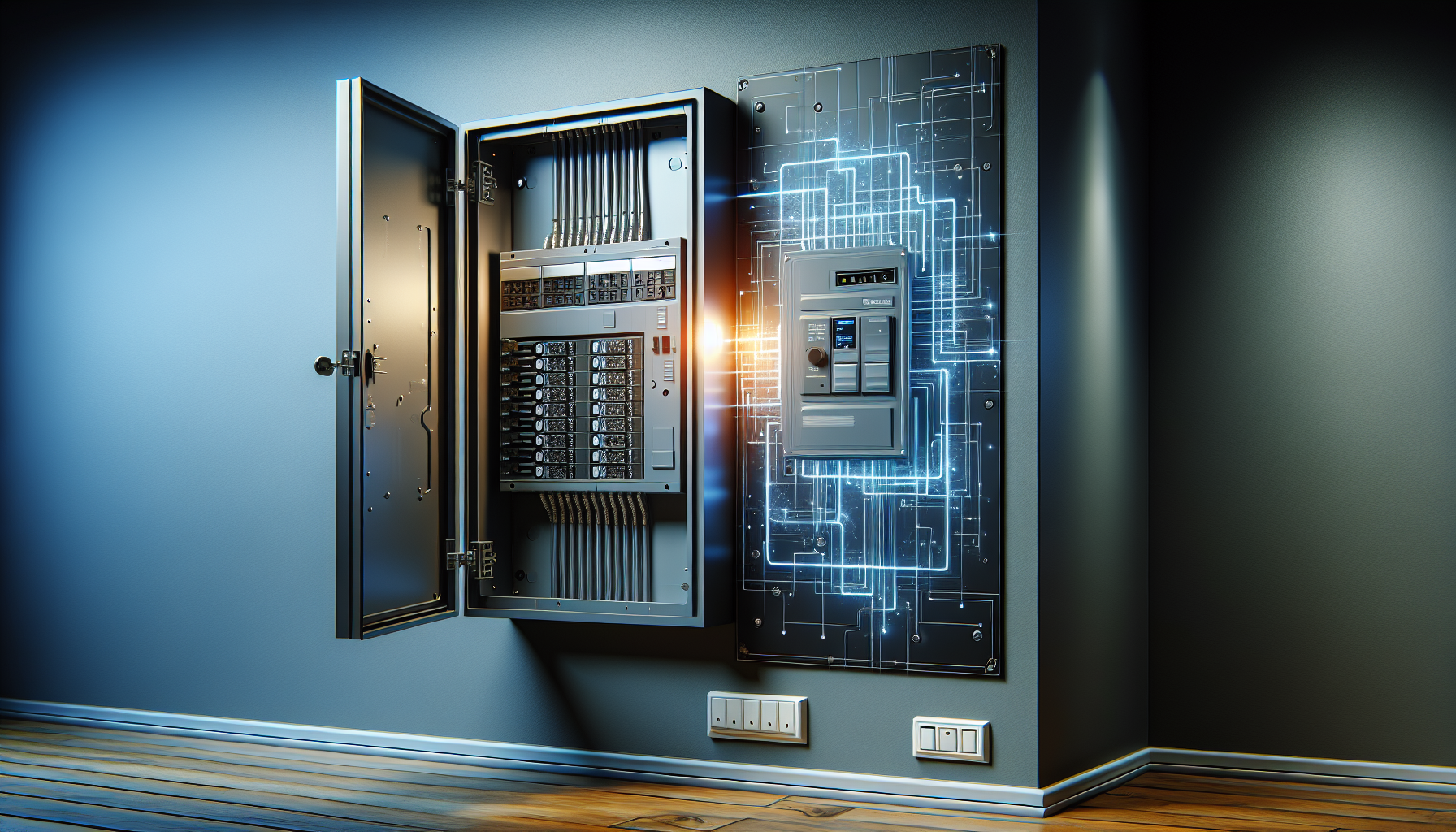
Date
Is It Worth Upgrading Electrical Panel?
Are you currently facing electrical issues in your home? Perhaps you’ve been experiencing frequent power outages, tripped circuits, or overloaded circuits. If so, the question of whether it’s worth upgrading your electrical panel has likely crossed your mind. Upgrading the electrical panel can offer a range of benefits, such as improved safety, increased capacity, and enhanced functionality. In this article, we will explore the advantages of upgrading your electrical panel and help you determine if it’s the right decision for you. So, let’s get started and shed some light on this electrifying topic!
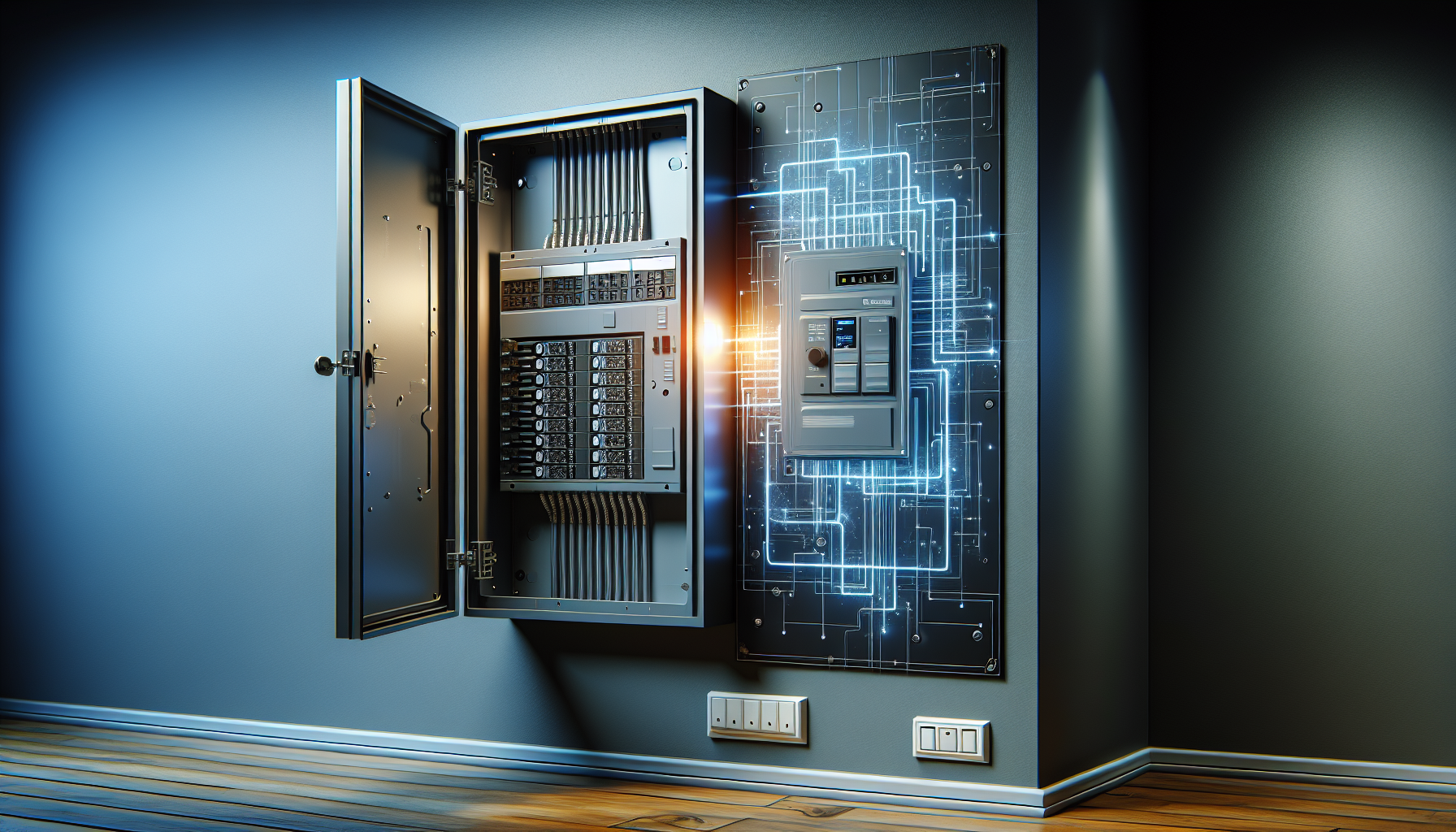
The Importance of Upgrading an Electrical Panel
Ensuring Safety and Preventing Electrical Fires
Upgrading an electrical panel is of utmost importance in ensuring the safety of your home or property. An outdated or overloaded electrical panel can pose serious risks, including electrical fires. Over time, the electrical components within the panel can deteriorate, leading to potential hazards. By upgrading your electrical panel, you are taking proactive measures to prevent electrical fires and protect your property, belongings, and most importantly, the lives of the people within it.
Improving Energy Efficiency
Another compelling reason to upgrade your electrical panel is to improve energy efficiency. Older electrical panels may not be equipped to handle the demands of today’s energy-intensive appliances and electronics. With an upgraded panel, you can ensure that your electrical system operates at its optimal capacity, minimizing energy waste and lowering your utility bills in the process. Upgrading your electrical panel can be a significant step toward creating a more energy-efficient home.
Accommodating Increased Electrical Demands
As our reliance on electricity continues to grow, so do our electrical demands. Upgrading your electrical panel allows you to accommodate the increased load requirements of modern lifestyles. Whether you are adding new appliances, installing a home office, or expanding your living space, an upgraded panel ensures that you have sufficient electrical capacity to meet your needs. By upgrading, you can avoid overloading your system, which can lead to frequent breaker tripping and potential damage to your electrical devices.
Meeting Electrical Code Requirements
Electrical codes and regulations are put in place to ensure the safety and functionality of electrical systems. Over time, these codes evolve to adapt to changing technologies and practices. If your current electrical panel is outdated, it may not comply with current electrical code requirements. By upgrading your panel, you can bring your electrical system up to code, ensuring that it meets all the necessary safety standards. This is particularly crucial if you plan on selling or renting out your property, as non-compliance with electrical codes can pose legal and safety issues.
Signs That Indicate the Need for Electrical Panel Upgrade
Frequent Tripping of Circuit Breakers
If you constantly find yourself resetting tripped circuit breakers, it may be a clear sign that your electrical panel is inadequate for your electrical needs. Frequent breaker trips indicate that your system is overloaded, and upgrading to a larger, higher-capacity panel can help prevent future disruptions.
Dimming or Flickering Lights
If your lights dim or flicker when you turn on certain appliances or electronics, it could be a sign that your electrical panel is struggling to handle the increased load. Upgrading your panel will provide the necessary electrical capacity to eliminate these annoying issues and ensure proper functioning of your lights and appliances.
Buzzing or Crackling Sounds from the Panel
Unusual sounds, such as buzzing or crackling, coming from your electrical panel should never be ignored. These noises could indicate loose connections or damaged components within the panel, which can pose a fire hazard. Upgrading your panel will not only eliminate these sounds but also enhance the overall safety of your electrical system.
Burning Smell or Scorch Marks
The presence of a burning smell or scorch marks near your electrical panel is a serious warning sign that should never be ignored. This could indicate overheating or arcing within the panel, both of which pose significant fire hazards. If you notice these signs, it is crucial to upgrade your electrical panel immediately to prevent any potential disasters.
Outdated Fuse Box
If your property still has an outdated fuse box rather than a modern circuit breaker panel, it is definitely time for an upgrade. Fuse boxes are considered outdated and can be problematic when it comes to safety and ease of use. Upgrading to a circuit breaker panel will provide better protection against electrical fires and improve overall electrical system functionality.
Adding New Appliances or Electronics
If you are adding new appliances or electronics to your home, it is essential to consider whether your current electrical panel can handle the increased load. Overloading your panel can lead to issues such as breaker trips, flickering lights, and potential damage to your electrical devices. Upgrading your panel will provide the capacity needed to support your new additions and ensure the safe and efficient operation of your electrical system.
Factors to Consider Before Upgrading an Electrical Panel
Age of the Current Electrical Panel
The age of your current electrical panel is a crucial factor to consider when contemplating an upgrade. Older panels are more likely to have worn out components, increased risk of malfunctions, and may not comply with current electrical code requirements. If your panel is older than 20-30 years, it is strongly recommended to have a professional electrician assess its condition and advise on the need for an upgrade.
Power Requirements of the Property
Assessing the power requirements of your property is essential in determining whether an electrical panel upgrade is necessary. Consider the appliances, electronics, and overall electrical load that your home or business requires. If you frequently experience breaker trips or have insufficient electrical capacity to meet your needs, it may be time to upgrade to a larger panel.
Future Expansion Plans
Consider any future expansion plans or renovations that may require additional electrical capacity. If you are planning to add rooms, a home office, or any new electrical installations, it is crucial to ensure that your electrical panel can accommodate the increased load. By considering future needs, you can avoid the hassle of having to upgrade your panel again in the near future.
Budgetary Constraints
While the importance of electrical panel upgrades cannot be overstated, it is important to consider your budgetary constraints before making the decision to upgrade. Upgrading an electrical panel is an investment in the safety and functionality of your electrical system, but it does come with a cost. Consult with a licensed electrician to discuss the available options and get a realistic estimate of the costs involved. Remember, the upfront cost of an upgrade can save you from potential damages and expenses in the long run.
Hiring a Licensed Electrician
When considering an electrical panel upgrade, it is crucial to hire a licensed and experienced electrician to assess, plan, and carry out the upgrade. Attempting a DIY panel upgrade or hiring an unqualified individual can result in safety hazards, code violations, and potential damage to your electrical system. A licensed electrician will ensure that the upgrade is done correctly, in compliance with regulations, and up to industry standards.
The Process of Upgrading an Electrical Panel
Initial Electrical Panel Assessment
The first step in the process of upgrading an electrical panel is to have a licensed electrician conduct an initial assessment of your current panel. They will evaluate the condition, capacity, and overall functionality of the existing panel to determine if an upgrade is necessary. This assessment will help identify any potential issues or hazards that need to be addressed during the upgrade.
Determining the Suitable Panel Size and Capacity
Based on the assessment, the electrician will determine the suitable panel size and capacity needed for your property. This involves considering factors such as the electrical load requirements, future expansion plans, and compliance with electrical codes. Selecting the right panel size and capacity is crucial to ensure the safe and efficient operation of your electrical system.
Obtaining Necessary Permits
Before any electrical work can begin, it is important to obtain the necessary permits from the local building or electrical authority. These permits ensure that the upgrade is done in compliance with the applicable regulations and codes. A licensed electrician will handle the permit application process on your behalf, ensuring that all the required paperwork is completed accurately and promptly.
Shutting off the Power and Disconnecting the Existing Panel
Prior to the upgrade, the electrician will shut off the power to your property to ensure the safety of everyone involved. They will then proceed to disconnect the existing electrical panel, carefully removing all the wiring connections. This step requires precision and knowledge to avoid any damage to the electrical system and ensure a smooth transition to the new panel.
Installing the New Panel and Wiring
Once the existing panel is disconnected, the electrician will install the new panel, ensuring that it is securely mounted and properly grounded. They will then proceed to reconnect all the wiring connections, taking precautionary measures to avoid any loose or faulty connections. The installation process will follow the manufacturer’s guidelines and electrical codes to ensure the highest level of safety and functionality.
Testing and Inspection
After the new panel is installed and all the wiring connections are made, the electrician will conduct a series of tests to ensure that the electrical system is functioning correctly. This includes checking voltage levels, circuit breaker functionality, and overall system performance. Additionally, an inspection may be conducted by the local building or electrical authority to ensure compliance with the applicable regulations and codes.
Restoring the Power
Once all the tests and inspections are successfully completed, the electrician will restore the power to your property. This final step ensures that your electrical system is fully operational, and all connected devices and appliances can be powered. Restoring the power is done with utmost care and precision to avoid any electrical surges or hazards.
Potential Benefits of Upgrading an Electrical Panel
Enhanced Electrical Safety
One of the most significant benefits of upgrading an electrical panel is the enhanced electrical safety it provides. A modern, properly functioning panel reduces the risk of electrical fires, electrocution, and electrical malfunctions. The updated electrical components and increased capacity ensure that your electrical system operates safely and reliably.
Reduced Risk of Electrical Fires
Outdated or overloaded electrical panels are a major cause of electrical fires. By upgrading your panel, you significantly reduce the risk of electrical fires in your home or property. With improved safety features and the ability to handle increased electrical demands, an upgraded panel provides peace of mind and protects your property from potential fire hazards.
Improved Functionality and Reliability
Upgrading your electrical panel not only enhances safety but also improves the overall functionality and reliability of your electrical system. With a modern, properly sized panel, you can expect fewer breaker trips, flickering lights, and electrical malfunctions. Your electrical system will be better equipped to handle the demands of your appliances and electronics, resulting in a more efficient and reliable electrical supply.
Prevention of Electrical Overloads
Electrical overloads can cause serious damage to both your electrical system and connected devices. By upgrading your panel to a higher capacity, you can prevent electrical overloads and avoid the inconvenience and potential costs associated with damaged electrical equipment. Having the right panel size ensures that your electrical system operates within its safe limits.
Increased Property Value
Upgrading your electrical panel can also have a positive impact on your property’s value. A modern and well-maintained electrical system is an attractive feature for potential buyers or renters. It indicates that the property meets safety standards, is less likely to have electrical issues, and can handle the electrical needs of modern lifestyles. Upgrading your panel is an investment that not only provides immediate benefits but also adds value to your property in the long run.
Cost Considerations and Return on Investment
Cost of Electrical Panel Upgrade
The cost of upgrading an electrical panel varies depending on several factors, including the size of the panel, the complexity of the installation, and any additional electrical work required. On average, the cost of upgrading a panel can range from a few hundred to a few thousand dollars. It is essential to consult with a licensed electrician to get an accurate estimate based on the specific requirements of your property.
Potential Energy Savings
While the upfront cost of an electrical panel upgrade is a consideration, it is important to factor in the potential energy savings. Upgrading to a more energy-efficient panel can help reduce your utility bills over time. Modern panels are designed to operate more efficiently, minimizing energy waste and optimizing electrical usage. These energy savings can contribute to the overall return on investment of the upgrade.
Potential Insurance Premium Reductions
Some insurance companies offer incentives such as premium reductions for properties that have upgraded electrical panels. This is because an upgraded panel reduces the risk of electrical fires and associated damages, making the property a lower insurance risk. Consult with your insurance provider to determine if an upgraded panel qualifies you for any potential discounts or benefits.
Return on Investment (ROI)
While the exact return on investment for an electrical panel upgrade may vary depending on factors such as property location and market conditions, it is generally considered a worthwhile investment. The enhanced safety, functionality, and value of your property can provide long-term benefits that outweigh the upfront cost. Additionally, the energy savings and potential insurance premium reductions can contribute to the overall return on investment over time.
Common Misconceptions and Myths About Electrical Panel Upgrades
Upgrading an Electrical Panel is Unnecessary
One common misconception is that upgrading an electrical panel is unnecessary if there are no immediate issues or concerns. However, upgrading your panel is a proactive step to prevent potential hazards and ensure the safety and functionality of your electrical system. Waiting for issues to arise can result in costly repairs, damages, and potential dangers.
Only Old Homes Need Panel Upgrades
Another myth is that only older homes require panel upgrades. While older homes may have a higher likelihood of outdated panels, even newer homes can benefit from upgrading to meet the increased electrical demands of modern lifestyles. It is essential to assess the capacity and condition of your panel regardless of the age of your property.
DIY Electrical Panel Upgrades are Safe
Attempting a DIY electrical panel upgrade is not recommended and can be extremely dangerous. Electrical work requires specialized knowledge, skills, and tools. Without proper training and experience, there is a high risk of electrical shock, fire hazards, and code violations. It is always best to hire a licensed electrician for any electrical upgrades or repairs.
Upgrading a Panel Requires Rewiring the Entire Property
While upgrading an electrical panel may involve rewiring certain connections, it does not necessarily require rewiring the entire property. The scope of the upgrade depends on the condition and capacity of your existing electrical system. A licensed electrician will assess the specific needs of your property and determine the extent of any necessary rewiring.
Important Safety Measures to Follow During and After an Electrical Panel Upgrade
Hiring a Licensed and Experienced Electrician
Safety should always be the top priority when it comes to electrical work. Hiring a licensed and experienced electrician ensures that the upgrade is done correctly, safely, and in compliance with electrical codes. They have the knowledge and expertise to handle the intricacies and potential risks involved in the upgrade process.
Turning off Power During the Upgrade
Turning off the power to your property is a critical safety measure during an electrical panel upgrade. This ensures that there is no electrical flow, minimizing the risk of electrical shock or other accidents. The electrician will take the necessary precautions to safely shut off the power before starting the upgrade process.
Proper Grounding and Bonding
Proper grounding and bonding are essential for the safe operation of your electrical system. During the upgrade, the electrician will ensure that the new panel is properly grounded and bonded, adhering to electrical codes and regulations. This helps protect against electrical surges, overloads, and potential electrical hazards.
Using Quality Electrical Components
Using quality electrical components is vital for the reliability and safety of your upgraded panel. Cheap or substandard components can lead to malfunctions, loose connections, and potential fire hazards. A licensed electrician will use reputable brands and ensure that all components meet the necessary safety standards.
Regular Maintenance and Inspections
After the electrical panel upgrade is complete, it is important to follow regular maintenance and inspection schedules. This helps identify any potential issues or hazards early on and ensures the ongoing safety and functionality of your electrical system. Regular inspections by a licensed electrician can provide peace of mind and help avoid costly repairs in the future.
Potential Challenges and Risks Associated with Electrical Panel Upgrades
Identifying and Handling Asbestos or Lead-based Wiring
In some older properties, the presence of asbestos or lead-based wiring may pose challenges during an electrical panel upgrade. These hazardous materials require specialized handling and removal by licensed professionals. It is essential to have a thorough assessment done before the upgrade to identify the presence of these materials and take appropriate measures for their safe removal.
Dealing with Knob and Tube Wiring
Properties with knob and tube wiring can present challenges during an electrical panel upgrade. Knob and tube wiring is an outdated electrical system that does not meet modern safety standards. In some cases, replacing the knob and tube wiring may be necessary to ensure the safety of the upgraded panel. This can involve additional costs and expert knowledge to properly handle the wiring replacement.
Upgrading Inadequate Electrical Service
Some properties may have inadequate electrical service, meaning that the incoming electrical supply is insufficient for current needs. Upgrading the electrical service may be necessary to ensure the full functionality of the upgraded panel. This can involve working with the local utility company to increase the capacity of the electrical service, which may require additional time and coordination.
Ensuring Compatibility with Existing Electrical Systems
When upgrading an electrical panel, it is crucial to ensure compatibility with the existing electrical systems in your property. This includes considering any interconnected systems, such as solar panels, generators, or specialized wiring. Working with a licensed electrician who has expertise in system integration will help ensure a seamless upgrade process with minimal disruption.
Conclusion
Assessing the need for an electrical panel upgrade is an important step in ensuring the safety, efficiency, and future-proofing of your electrical system. Whether prompted by signs such as frequent breaker trips, dimming lights, or the addition of new appliances, upgrading your electrical panel offers numerous benefits. By consulting with a licensed electrician, considering factors such as panel age, power requirements, future expansion plans, and budgetary constraints, you can make an informed decision about the upgrade.
The process of upgrading an electrical panel involves an initial assessment, determining the suitable panel size, obtaining necessary permits, shutting off power, installing the new panel, testing, inspection, and finally restoring power. The upgrade enhances electrical safety, reduces the risk of electrical fires, improves functionality and reliability, prevents electrical overloads, and increases property value.
While there are costs involved in upgrading an electrical panel, it is important to consider the potential energy savings, potential insurance premium reductions, and the overall return on investment. It is crucial to separate common misconceptions and myths about panel upgrades from the reality. Hiring a licensed electrician, following important safety measures, and being aware of potential challenges and risks associated with the upgrade process will ensure a successful and safe upgrade.
In conclusion, upgrading your electrical panel is a worthwhile investment that provides immediate and long-term benefits. It ensures the safety of your property, enhances functionality, improves energy efficiency, and increases property value. By prioritizing safety, consulting with professionals, and carefully considering the factors involved, you can make an informed decision about upgrading your electrical panel.

